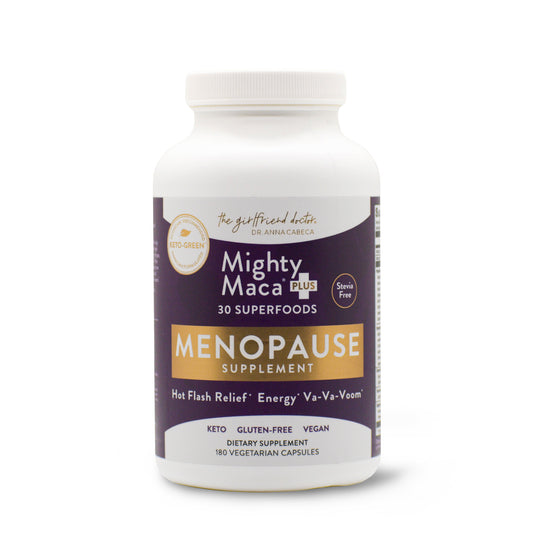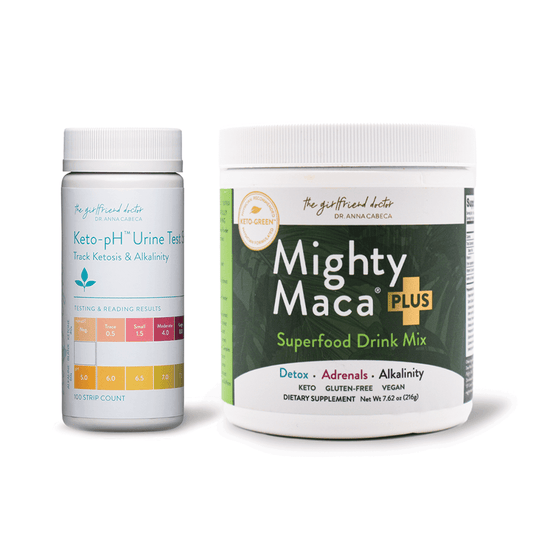Key Topics & Time Stamps
- 0:00 Introduction & welcome
- 6:00 Common patient experiences around menopause
- 12:00 Failure of traditional medical approaches
- 18:00 Hormone testing challenges & advances
- 28:00 Importance of detox and lifestyle in hormone health
- 40:00 Estrogen metabolism pathways & safety
- 52:00 Role of inflammation and oxidative stress
- 61:00 Gut health and its connection to hormones
- 73:00 Detox strategies & supplements for hormonal balance
- 84:00 Hormone pellets and long-term concerns
- 90:00 Functional testing recommendations
- 96:00 Laboratory markers to watch
- 101:00 Practical lifestyle advice & mindset
- 110:00 Wrap-up & resources
The Menopause Journey Reimagined
I’m thrilled to take you beyond common menopause narratives with insights from my enlightening conversation with Dr. Cheryl Burdette. Menopause is often framed as an inevitable struggle, but the truth is that through functional medicine, we have the tools to reclaim health, vitality, and empowerment. If you’ve ever felt lost navigating hormonal changes or frustrated by a lack of support, this conversation will resonate deeply.
The Patient Experience: Feeling Lost, Unsupported, and Searching
Many women arrive at menopause feeling like there’s no map or guide. As Cheryl and I discussed, this stage is often dismissed or misunderstood, even within our medical system. Unlike pregnancy, which is treated as a “wellness event,” menopause lacks a normalized framework for ongoing care and prevention. Women often have seen multiple doctors, searched online, and feel dismissed — longing for understanding instead of prescriptions with no lifestyle integration. Functional and naturopathic approaches offer an empowering alternative, focusing on root causes and personalized care.
Breaking Down Traditional Medicine Failures
Standard approaches often neglect the whole person — focusing too heavily on medication without integrating diet, environment, and detoxification strategies. Cheryl highlights how many women find only limited relief from bioidentical hormones because the conversation rarely includes metabolic pathways, inflammation, or hormone safety. It’s vital to shift this mindset from “managing symptoms” to optimizing health through multiple pillars.
Advances in Hormone Testing: Seeing the Whole Picture
Hormone testing has evolved tremendously. Sensitive estradiol testing now allows us to measure the minute hormone levels women actually have postmenopause. We can also now assess how estrogen metabolizes—into good, bad, or ugly metabolites—which traditional tests missed. This insight is essential because it reveals why some women respond well to hormone therapy and others do not. Personalizing hormone support based on these tests, combined with understanding an individual's environment and detox capacity, greatly improves outcomes.
Detox, Inflammation, and Lifestyle: The Cornerstones of Hormonal Health
Hormone health does not exist in isolation. Chronic inflammation and oxidative stress block hormone receptors and disrupt signaling. Detoxifying endocrine disruptors like environmental chemicals, improving gut health, and reducing inflammatory foods are essential steps. Cheryl and I emphasize that lifestyle strategies such as diet modifications (including ketogenic and low-carb approaches), intermittent fasting, and mindful supplementation set the stage for hormones to work optimally.
Understanding Estrogen Metabolism
We explore estrogen metabolism through the lens of the “good, bad, and ugly” pathways: namely, the 2-, 4-, and 16-hydroxy estrogen metabolites. The balance among these pathways affects cancer risk and symptom profiles. Nutritional support, including broccoli sprouts (sulforaphane), DIM (diindolylmethane), and methylated folates, can favor healthier metabolism and reduce DNA damage risk. This nuanced approach helps to safely optimize hormone levels without simply “slapping on” hormones without context.
The Gut-Hormone Connection: The Estrobolome and Immunity
Gut health is foundational. The estrobolome—microbial communities influencing estrogen metabolism—directly impacts inflammation, hormone clearance, and overall health. Probiotic strategies, anti-inflammatory diets, and minimizing processed foods empower the gut to support hormonal balance. Cheryl shares fascinating research on how improving the gut microbiome alleviates hot flashes, brain fog, and mood issues, even before hormone therapy begins.
Hormone Pellets: Benefits and Warnings
Hormone pellets are popular but come with concerns, especially with long-term high dosing. Cheryl and I discuss how excessive testosterone or estrogen can downregulate the hypothalamic-pituitary-adrenal axis (HPA axis) and other hormone systems, leading to symptoms like depression or imbalance. Gradual dosing, careful monitoring of metabolites, and supplementing with support such as Mighty Maca® Plus are key to preventing adverse effects.
Functional Labs to Guide Treatment
To truly individualize care, functional testing—including urine metabolite panels, oxidative stress markers like 8-OH-DG and F2 isoprostane, and stool tests for gut flora—provides invaluable data. These labs reveal gut health, hormone metabolism efficiency, inflammation levels, and oxidative damage, enabling precise interventions that go beyond standard blood hormone levels.
Practical Tips for Women on Their Journey
Empowerment comes from participation. We encourage women to embrace lifestyle changes:
Mindful eating emphasizes nutrient-dense, anti-inflammatory foods
Regular movement and stress management
Thoughtful supplementation tailored to lab results
Advocating for one’s health by asking questions and seeking whole-person care
Dr. Burdette and I both believe in “lazy medicine” — finding the smallest sustainable change that makes the biggest impact, because consistent daily habits shape long-term health.
If you want to move from feeling lost to feeling empowered, I highly encourage you to listen to the full episode. It’s not just about menopause—it’s about your whole health journey.
Q&A
Q: What is the biggest failure in traditional menopause care?
A: Lack of personalized, whole-person support, including hormone metabolism, detox, inflammation, and gut health assessment.
Q: How have hormone tests improved?
A: Sensitive estradiol tests and metabolite assessments provide a fuller picture of hormone balance and safety.
Q: What role does gut health play in menopause?
A: The gut microbiome (estrobolome) modulates inflammation and estrogen metabolism, affecting symptoms and hormone effectiveness.
Q: What lifestyle factors are most important during menopause?
A: Anti-inflammatory diet, detoxing endocrine disruptors, consistent physical activity, and supporting sleep and stress resilience.
For even more detailed insights, practical tips, and inspiring discussions, be sure to listen to the full episode of Beyond Menopause: Reclaiming Health and Vitality with Functional Medicine.
Your journey to empowerment and hormonal balance starts here.
Connect with Dr. Cheryl Burdette:
Connect with Dr. Anna Cabeca:
Disclaimer: This article is educational and not medical advice. Always consult your healthcare provider for personalized testing, diagnosis, and treatment.







